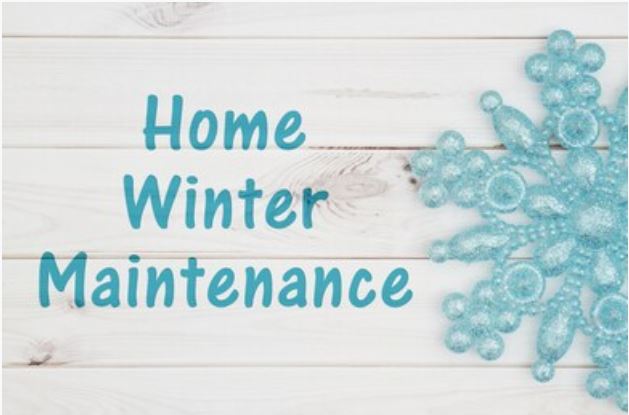With the change in seasons and the onset of cold, chilly days, you know it is time to prepare your home for winter. Having a home winterization plan in place is extremely important. Your home is one of your most valuable assets, so you must protect it.
To assist you in preparing for the change in seasons, here are some home winterization tips.
1. Create a Home Winterization Checklist
One of the first things you should do to prepare for the upcoming changes is to create a winter checklist. Make sure that you have all of the necessary equipment in case of an emergency. Keep at least two snow shovels in store. If you aren't a fan of shovels, purchase a snowblower. Make sure to possess a case of salt to treat the snow and reduce the risk of a potential slip and fall accident on your property. Store up extra water and canned food in case a blizzard leaves you unable to travel.
Check your gutters. If you checked your gutter during the fall, it's important to check them again before winter sets in. Clean all of the excess debris and leaves out of your gutters. This will prevent potential drainage issues during the winter. Check your roof shingles to see if they are damaged, and clean your chimney before heavy snowfall occurs. If necessary, add some sealer to your deck, which will make it more likely to withstand the harsh winter conditions.
2. Examine Any HVAC Issues
Check all of the doors and windows inside your home for potential air leaks. Add caulk or weatherstripping to areas where warm air can leak out. You can increase your home's energy output by installing double-paned windows. Tune-up your heating system and make sure to get the filter replaced by an experienced HVAC contractor who will check your furnace for any issue. This way, you will not only protect your home but also ensure cheaper energy bills.
3. Check Hidden Areas
Don't forget to check the walls, attic, and basement to see if they are properly insulated. Disconnect all of your outside faucets and shut off the water, sealing off any possible outlet of warm air. Check all of the electrical outlets and plates for cold air and add more insulation if needed.
4. Check for Carbon Monoxide
Carbon monoxide is regarded by many as a silent killer. The poison is invisible, tasteless, and odorless but has deadly consequences. Carbon monoxide can leak out into your home from any equipment that uses gas or oil. As you start running your heating system regularly, consider having an air quality test to see if there are any potential carbon monoxide leaks.
5. Check Your Generator
In the event of a power outage during the winter, consider adding a backup generator so that you and your loved ones can stay warm despite the blackout. To ensure that your generator is functioning properly, check the oil and change the fuel. If you have a fireplace, check the same for any gaps or exposed walls.
6. Unplug Appliances
If you aren't using an appliance, be sure to unplug it to save some money on your energy bill. Consider using LED bulbs throughout your home as they make efficient power savers.
How are you protecting your home from winter damage this season? Let us know! Want another great way to protect your home? Secure reliable
homeowners insurance that protects you through disasters.
Call one of our trusted advisors at Abatelli Group, Inc. We are ready to get you the protection and peace of mind you need.


